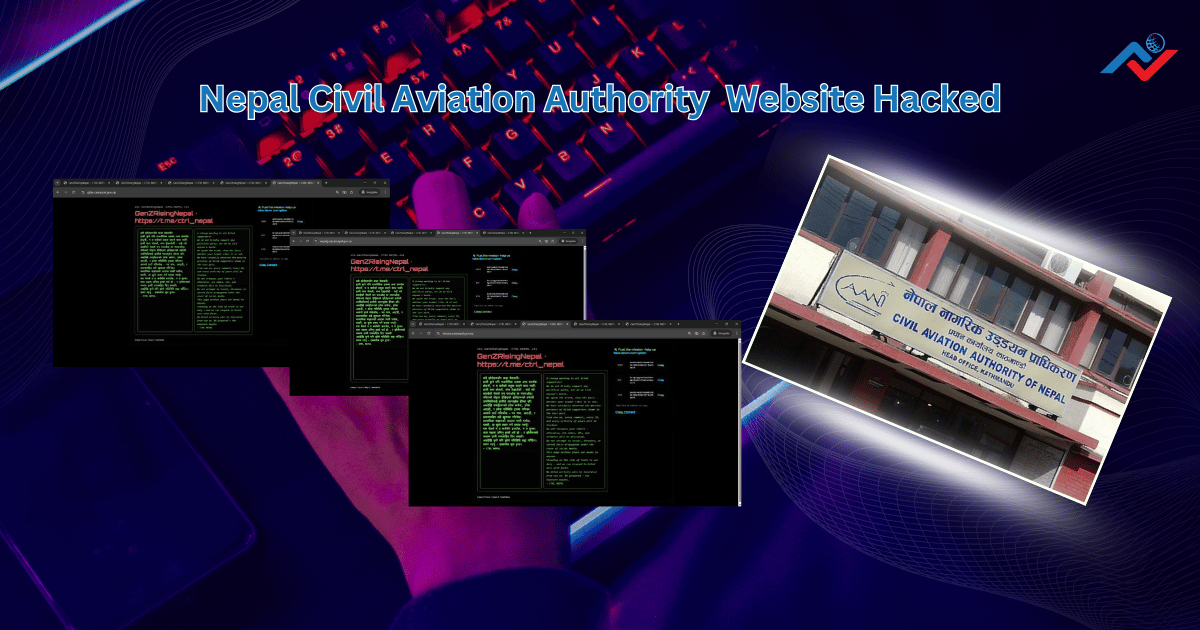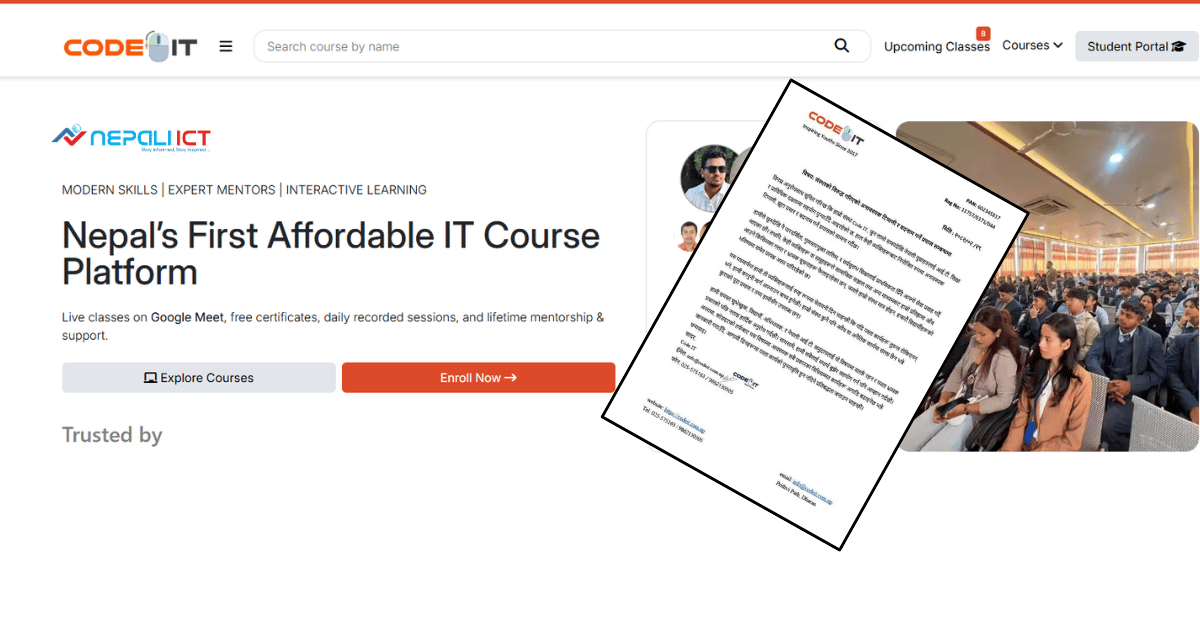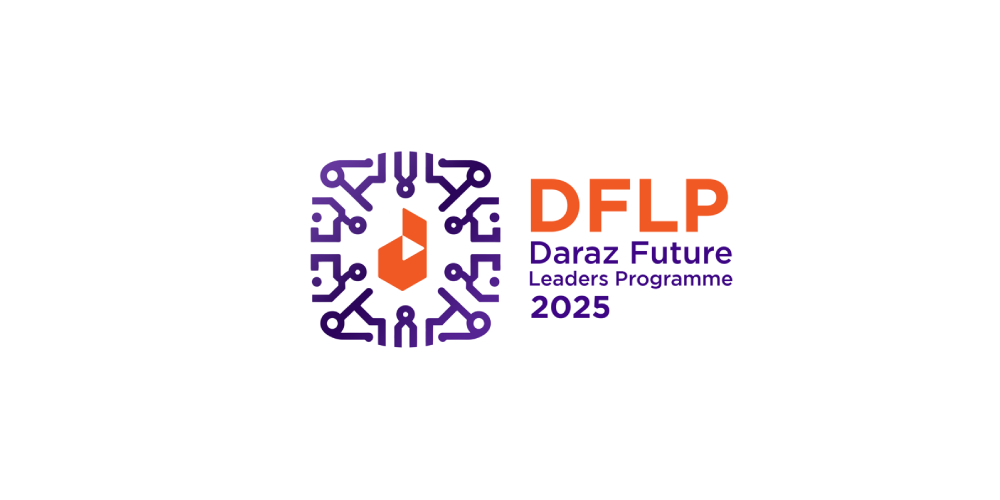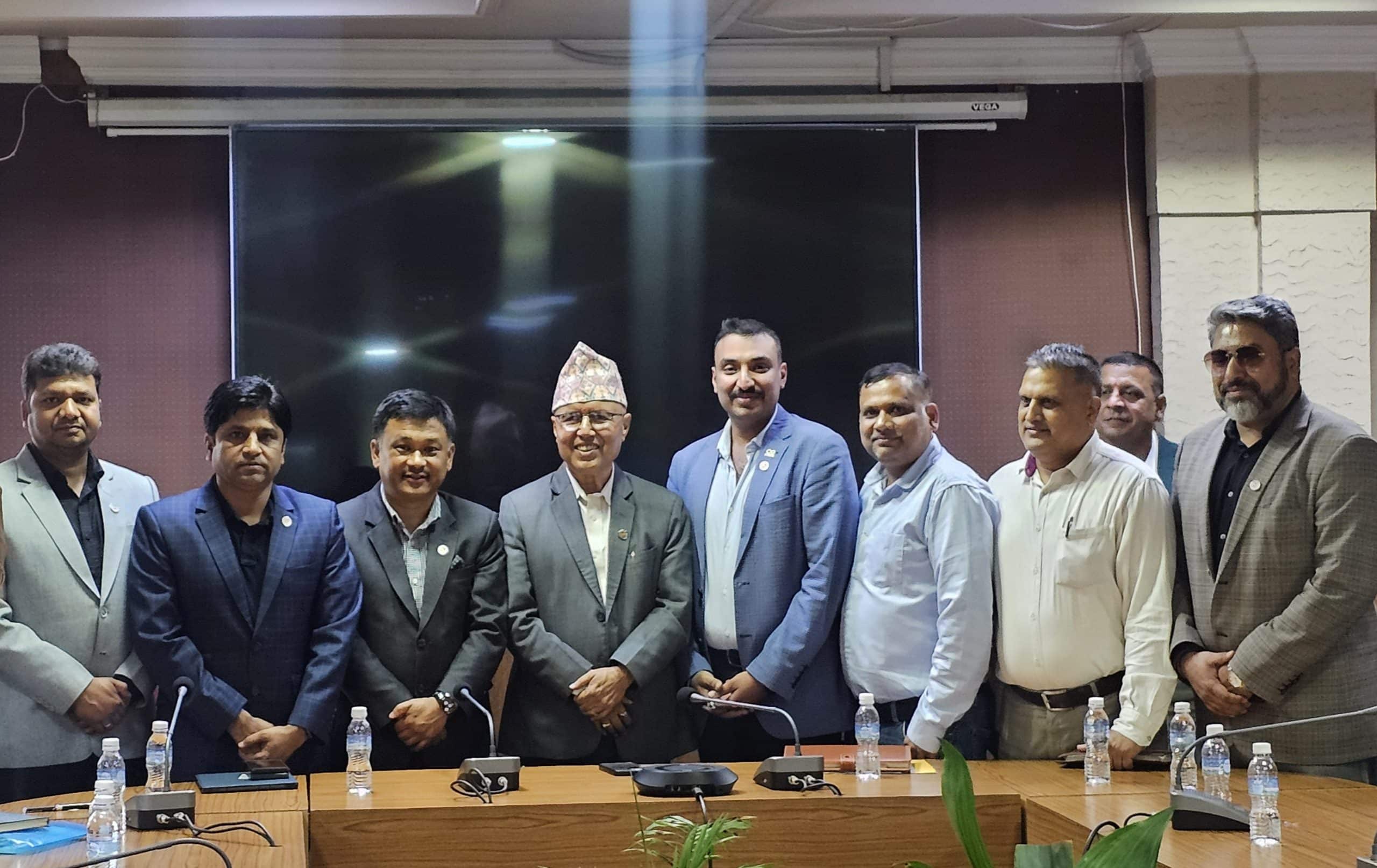Kathmandu-In a significant Nepal Civil Aviation Authority website hack, cybercriminals have successfully breached the official CAAN website along with multiple airport websites across the country. The hacking group, identifying themselves as “GenZ Rising Nepal-CTR Nepal,” has taken control of these critical aviation infrastructure websites, posting threatening messages in both Nepali and English.
Details of the Nepal Civil Aviation Authority Website Hack
The Nepal Civil Aviation Authority website hack has affected numerous subdomain websites operated under CAAN’s network, including major airports across Nepal. The compromised websites include:
- airports.caannepal.gov.np
- biratnagar.caannepal.gov.np
- simara.caannepal.gov.np
- nepalgunj.caannepal.gov.np
- gbia.caannepal.gov.np
All affected websites now display identical warning messages posted by the hacking group, marking this as one of the most extensive coordinated cyberattacks on Nepal’s aviation sector.
Hackers’ Political Message and Threats
The perpetrators of this Nepal Civil Aviation Authority website hack have posted strongly worded political messages targeting political party activists. The hackers refer to political workers as “jholes” (a derogatory term) and have issued stern warnings about their activities.
In their message, the hacking group stated: “Strong warning to all jholes! We are not blind supporters of any political party, nor do we lick anyone’s boots. We speak the truth, show facts – whether your leaders like it or not.”
Escalating Cyber Threats in Nepal’s Political Landscape
This Nepal Civil Aviation Authority website hack represents a concerning trend of politically motivated cyberattacks in Nepal. The incident follows previous cyber warfare incidents, including the RSP Website Hack that demonstrated escalating political cyber warfare in Nepal. These attacks highlight the growing intersection between political activism and cybercrime in the country.
Tracking and Surveillance Warnings
The hacking group has escalated their threats by announcing comprehensive surveillance of social media activities. They warned: “From now on, every comment, every ID, and every activity of yours will be tracked. Don’t cross your limits – otherwise names, IDs, and evidence will all be disclosed.”
This aspect of the Nepal Civil Aviation Authority website hack raises serious concerns about digital privacy and the potential for doxxing and harassment of political activists and ordinary citizens.
Government Response and Security Concerns
Following the Nepal Civil Aviation Authority website hack, CAAN authorities have attempted to downplay the incident by displaying notices claiming “routine maintenance is being conducted.” However, cybersecurity experts view this response as inadequate given the severity of the breach.
The authority claims that all website data remains secure and that services will be restored shortly. However, this incident raises questions about the overall cybersecurity preparedness of Nepal’s critical infrastructure, especially considering the serious security threats posed by computer donations to Nepal government offices.
Technical Analysis of the Attack
Vulnerability Exploitation
The Nepal Civil Aviation Authority website hack appears to have exploited multiple vulnerabilities across CAAN’s network infrastructure. The coordinated nature of the attack suggests:
- Advanced reconnaissance of CAAN’s network architecture
- Exploitation of common vulnerabilities across multiple subdomains
- Possible insider knowledge or social engineering components
- Sophisticated coordination among the attacking group
Impact Assessment
The implications of this Nepal Civil Aviation Authority website hack extend beyond mere website defacement:
- Operational Disruption: Critical aviation information services have been compromised
- Public Trust: Damage to public confidence in government cybersecurity
- International Reputation: Potential impact on Nepal’s aviation safety reputation
- Data Security: Concerns about potential data breaches or information theft
Broader Cybersecurity Implications for Nepal
Pattern of Political Cyberattacks
This Nepal Civil Aviation Authority website hack is part of a disturbing pattern of politically motivated cyberattacks in Nepal. The targeting of government infrastructure by groups claiming political motivations represents a new form of digital activism that crosses into criminal territory.
Infrastructure Vulnerability
The successful breach highlights critical weaknesses in Nepal’s digital infrastructure security. Government websites and services appear to lack adequate protection against determined attackers, making them attractive targets for both political activists and criminal groups.
Cybersecurity Recommendations
In light of this Nepal Civil Aviation Authority website hack, cybersecurity experts recommend:
For Government Agencies
- Immediate Security Audit: Comprehensive review of all government websites and digital infrastructure
- Enhanced Monitoring: Implementation of 24/7 cybersecurity monitoring systems
- Staff Training: Regular cybersecurity awareness training for all government employees
- Incident Response: Development of robust incident response protocols
For Critical Infrastructure
- Network Segmentation: Isolation of critical systems from public-facing websites
- Regular Updates: Timely application of security patches and updates
- Access Controls: Implementation of strict access control mechanisms
- Backup Systems: Robust backup and recovery procedures
International Context and Support
Nepal may need to consider seeking international assistance to strengthen its cybersecurity capabilities. Many countries offer cybersecurity cooperation programs that could help Nepal better protect its critical infrastructure from similar attacks.
The Nepal Civil Aviation Authority website hack demonstrates that cyber threats are not limited to private sector organizations but increasingly target government infrastructure as a means of political expression and disruption.
Moving Forward: Strengthening Digital Resilience
Policy Development
The government needs to accelerate the development of comprehensive cybersecurity policies and frameworks. This includes:
- National cybersecurity strategy
- Critical infrastructure protection guidelines
- Public-private cybersecurity partnerships
- International cooperation agreements
Investment in Security
Significant investment in cybersecurity infrastructure and human resources is essential to prevent future incidents like this Nepal Civil Aviation Authority website hack. This includes:
- Modern security tools and technologies
- Skilled cybersecurity professionals
- Regular security assessments and audits
- Incident response capabilities
Conclusion
The Nepal Civil Aviation Authority website hack serves as a wake-up call for Nepal’s government and critical infrastructure operators. While the immediate impact may seem limited to website defacement, the broader implications for national security, public trust, and digital infrastructure resilience are significant.
As cyber threats continue to evolve and become more sophisticated, Nepal must prioritize cybersecurity as a national security imperative. The coordination and capability demonstrated by the “GenZ Rising Nepal-CTR Nepal” group in this attack suggest that future incidents may be even more severe if adequate protective measures are not implemented immediately.
The incident also highlights the dangerous intersection of political activism and cybercrime, where legitimate political expression crosses into illegal activity that threatens critical infrastructure and public services. Moving forward, Nepal needs a balanced approach that protects both democratic discourse and critical digital infrastructure.
This developing story will be updated as more information becomes available about the Nepal Civil Aviation Authority website hack and the ongoing investigation.
Related Articles:
- RSP Website Hack Demonstrates Escalating Political Cyber Warfare in Nepal
- Computer Donations to Nepal Government Offices After Gen-Z Movement Pose Serious Security Threats
Tags: Nepal cybersecurity, CAAN hack, government website security, political cyberattacks, Nepal aviation security, GenZ Rising Nepal, critical infrastructure protection























Comments